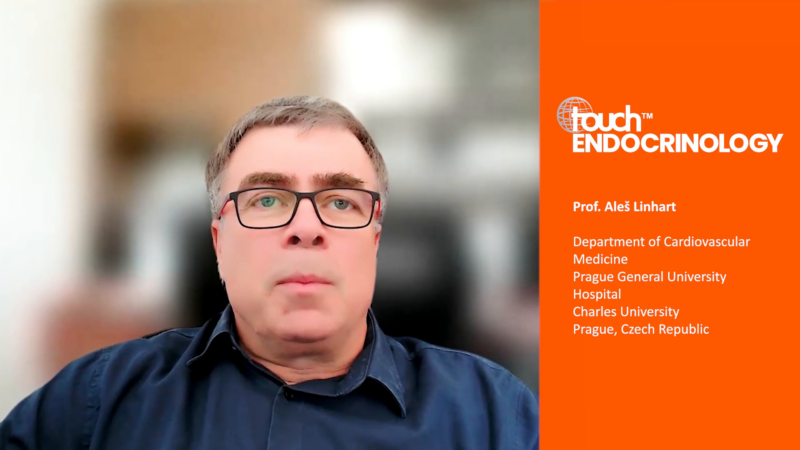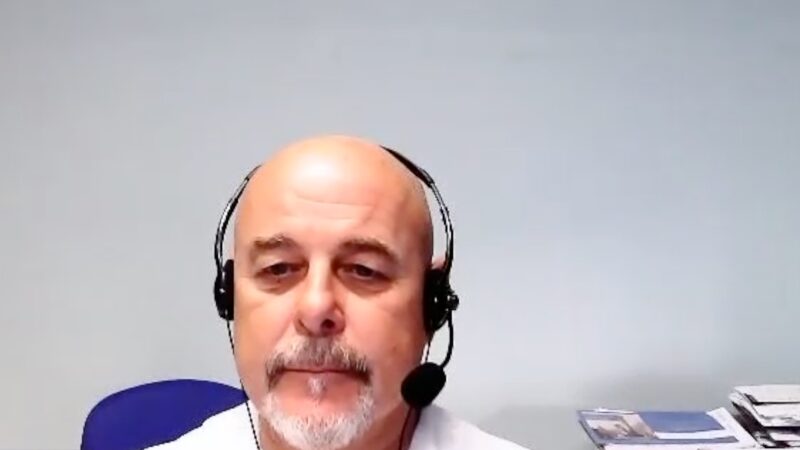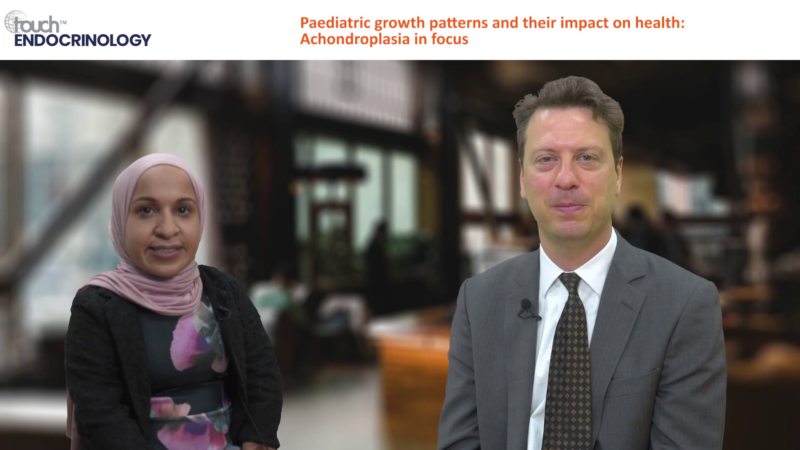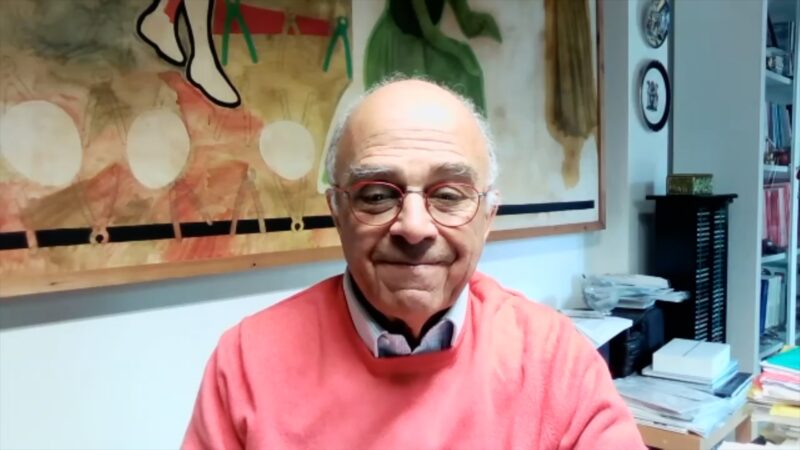touchIN CONVERSATION
 A relaxed discussion between two faculty focussed on real world clinical issues. Useful tips below will show how to navigate the activity. Join the conversation.
Close
A relaxed discussion between two faculty focussed on real world clinical issues. Useful tips below will show how to navigate the activity. Join the conversation.
Close
 A relaxed discussion between two faculty focussed on real world clinical issues. Useful tips below will show how to navigate the activity. Join the conversation.
Close
A relaxed discussion between two faculty focussed on real world clinical issues. Useful tips below will show how to navigate the activity. Join the conversation.
Close
Paediatric growth patterns and their impact on health: Achondroplasia in focus
- Select in the video player controls bar to choose subtitle language. Subtitles available in English, German, Japanese, Spanish.
- Downloads including slides are available for this activity in the Toolkit
Learning Objectives
After watching this activity, participants should be better able to:
- Explain how the mechanisms behind various bone growth control systems contribute to bone health and bone abnormalities
- Use appropriate growth charts to detect abnormal growth patterns in children
- Summarize the linear growth patterns, and physical and radiographic findings indicative of achondroplasia, and the impact of emerging treatments
Overview
In this activity, experts in paediatric endocrinology respond to questions from the endocrinology and paediatrics community on the normal and abnormal physiology of bone growth; detecting and assessing achondroplasia, including the use of growth charts; and the role of emerging targeted therapies in the management of achondroplasia.
This activity is jointly provided by USF Health and touchIME. read more
Target Audience
This activity has been designed to meet the educational needs of clinical geneticists, paediatric endocrinologists, paediatric orthopaedic surgeons and paediatricians involved in the management of children with achondroplasia.
Disclosures
USF Health adheres to the Standards for Integrity and Independence in Accredited Continuing Education. All individuals in a position to influence content have disclosed to USF Health any financial relationship with an ineligible organization. USF Health has reviewed and mitigated all relevant financial relationships related to the content of the activity. The relevant financial relationships are listed below. All individuals not listed have no relevant financial relationships.
Faculty
Dr Nadia Merchant discloses: Advisory board/ Panel fees from Biomarin. Consultancy fees from Pfizer. Grants/research support from Biomarin.
Dr Andrew Dauber discloses: Advisory board/ Panel fees from Biomarin, Novo Nordisk and Pfizer (relationship terminated). Consultancy fees from Novo Nordisk, TYRA (relationship terminated) and WebMD (relationship terminated). Grants/research support from Biomarin.
Content reviewer
Kaitlyn Rechenberg, PhD, MPH, APRN has no financial interests/relationships or affiliations in relation to this activity.
Touch Medical Director
Sola Neunie has no financial interests/relationships or affiliations in relation to this activity.
USF Health Office of Continuing Professional Development and touchIME staff have no financial interests/relationships or affiliations in relation to this activity.
Requirements for Successful Completion
In order to receive credit for this activity, participants must review the content and complete the post-test and evaluation form. Statements of credit are awarded upon successful completion of the post-test and evaluation form.
If you have questions regarding credit please contact cpdsupport@usf.edu.
Accreditations
Physicians
This activity has been planned and implemented in accordance with the accreditation requirements and policies of the Accreditation Council for Continuing Medical Education (ACCME) through a joint providership of USF Health and touchIME. USF Health is accredited by the ACCME to provide continuing medical education for physicians.
USF Health designates this enduring material for a maximum of 0.75 AMA PRA Category 1 CreditTM. Physicians should claim only the credit commensurate with the extent of their participation in the activity.
The European Union of Medical Specialists (UEMS) – European Accreditation Council for Continuing Medical Education (EACCME) has an agreement of mutual recognition of continuing medical education (CME) credit with the American Medical Association (AMA). European physicians interested in converting AMA PRA Category 1 CreditTM into European CME credit (ECMEC) should contact the UEMS (www.uems.eu).
Advanced Practice Providers
Physician Assistants may claim a maximum of 0.75 Category 1 credits for completing this activity. NCCPA accepts AMA PRA Category 1 CreditTM from organizations accredited by ACCME or a recognized state medical society.
The AANPCP accepts certificates of participation for educational activities approved for AMA PRA Category 1 CreditTM by ACCME-accredited providers. APRNs who participate will receive a certificate of completion commensurate with the extent of their participation.
Date of original release: 03 August 2022. Date credits expire: 03 August 2023.
If you have any questions regarding credit please contact cpdsupport@usf.edu.
To obtain the CE/CME credit(s) from this activity, please complete this post-activity test.
Claim Credit- Select in the video player controls bar to choose subtitle language. Subtitles available in English, German, Japanese, Spanish.
- Downloads including slides are available for this activity in the Toolkit
You may also be interested in...

Register to touchENDOCRINOLOGY for FREE
- Peer-reviewed journals and expert opinions
- Interactive CME and e-learning modules
- Video conference highlights

Log into your Touch Account
Earn and track your CME credits on the go, save articles for later, and follow the latest congress coverage.
Sign up with an Email
Or use a .
This Functionality is for
Members Only
Explore the latest in medical education and stay current in your field. Create a free account to track your learning.





















